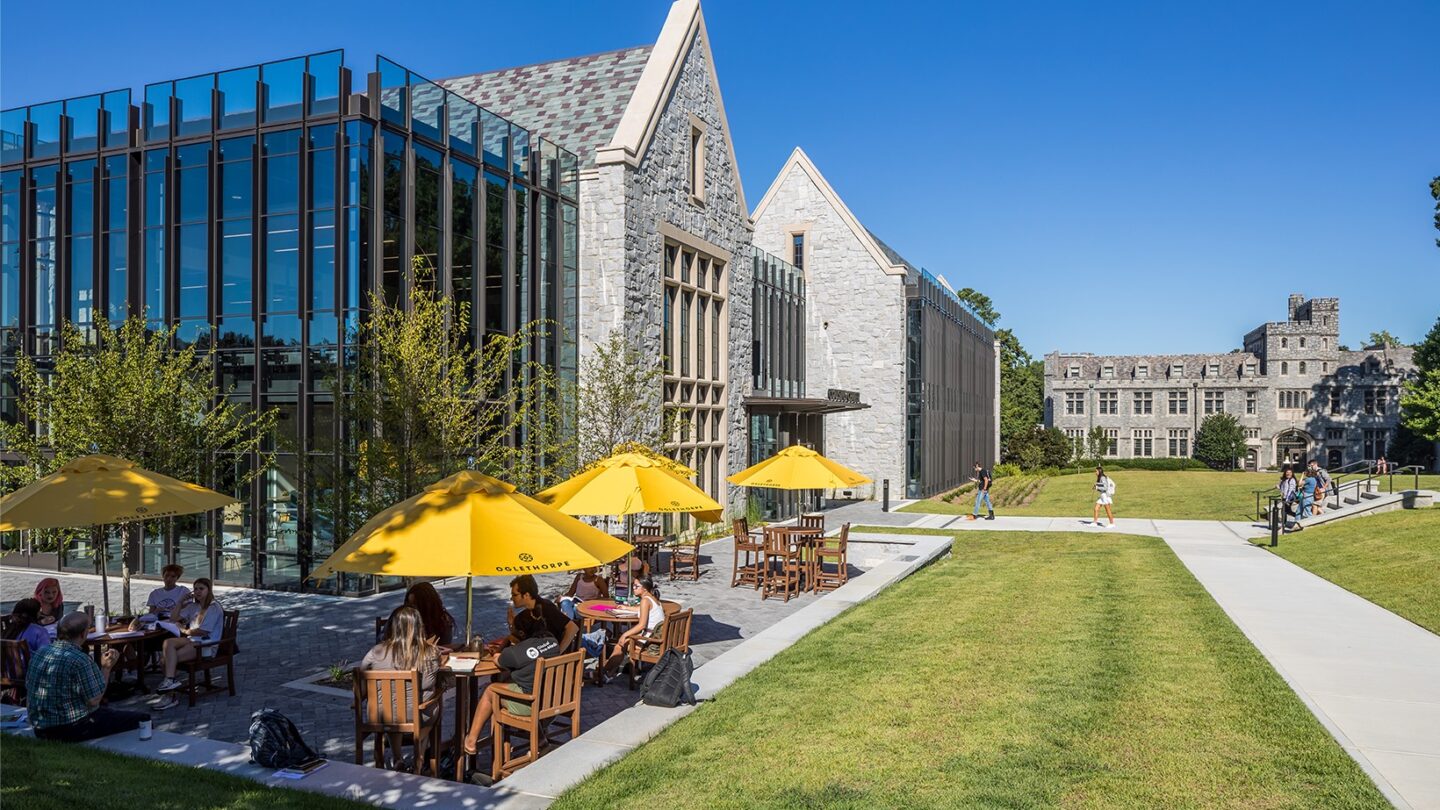Oglethorpe University takes new approach to treating mental health

Data show 60% of U.S. college students struggle with at least one mental health issue. Atlanta’s Oglethorpe University is trying to lead the way with a new approach to treating mental health on campus.
Oglethorpe President Dr. Nick Ladany says mental health issues have increased for the past two decades. Then COVID-19 accelerated everything, he says.
“We’re seeing a big spike in depression-related challenges as well as anxiety-related challenges and other things such as disordered eating, substance use and abuse,” Ladany says. “The pandemic has kind of caused this uptick across the board in certain mental health challenges.”
Colleges often use short-term models for counseling, which limit the number of sessions students can receive on campus. But when Ladany, who has a background in counseling psychology, came to Oglethorpe in the summer of 2020, he put no limits on sessions.
“Short-term models are analogous to giving aspirin for cancer,” Ladany says. “Aspirin works for a headache; it doesn’t work for longer, major issues.”
For example, he says, short-term treatment might work for a romantic breakup, but not necessarily for coping with the long-term effects of the pandemic or other more traumatic events.
“I know from my experience what can happen if you have limited services,” he says. “It just causes a cascade of other types of problems.”
Ladany said Oglethorpe has redesigned its approach to mental health by hiring more counseling staff and making services available 24/7.
Dr. Michelle Lyn is the director of Oglethorpe’s counseling center. She says more students are seeking out mental health care, but there’s still a stigma attached to treatment for some.
“Instead of seeing counseling as something that can be beneficial to everyone for working on developmental concerns or personal growth concerns, [they assume if] they’re seeking counseling that something must be wrong with them, or they’re not able to handle issues on their own that they should be able to handle on their own,” Lyn says.
More than 60% of Oglethorpe’s 1,452 students are people of color. Lyn points out that historically, some cultural groups have had harmful experiences with therapy, which may affect some students’ attitudes about seeking help.
“Our staff is committed to understanding that history and being sure that we ourselves are very well-trained and inclusive and to work towards breaking down stigma so that all students feel comfortable coming here,” she says.
Students who are doing well academically, Lyn says, may also feel uncomfortable seeking treatment.
“Learning how to balance…their high achieving nature, the way that they push themselves with…wellness and self-care and understanding that process,” she says. “[Counseling is] definitely not about students who are performing poorly and that’s why we need counseling services. It really is for all students at different points in their college career.”
Every school may not offer unlimited therapy sessions, but many Georgia colleges are expanding what they do offer to include benefits like 24-hour helplines and group counseling services.








